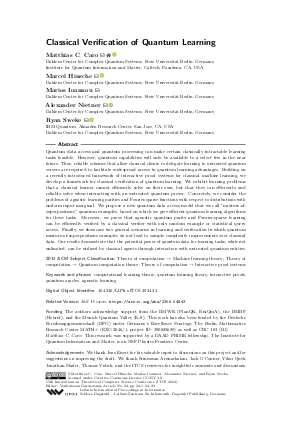LIPIcs.ITCS.2024.24.pdf
- Filesize: 0.83 MB
- 23 pages

 Creative Commons Attribution 4.0 International license
Creative Commons Attribution 4.0 International license





Feedback for Dagstuhl Publishing